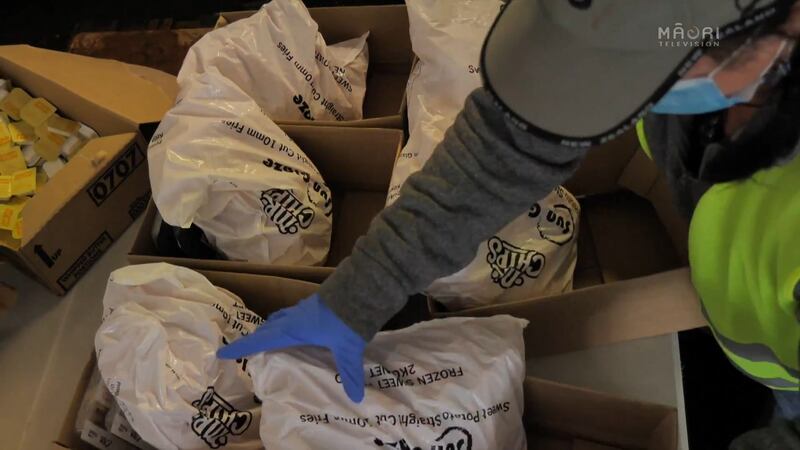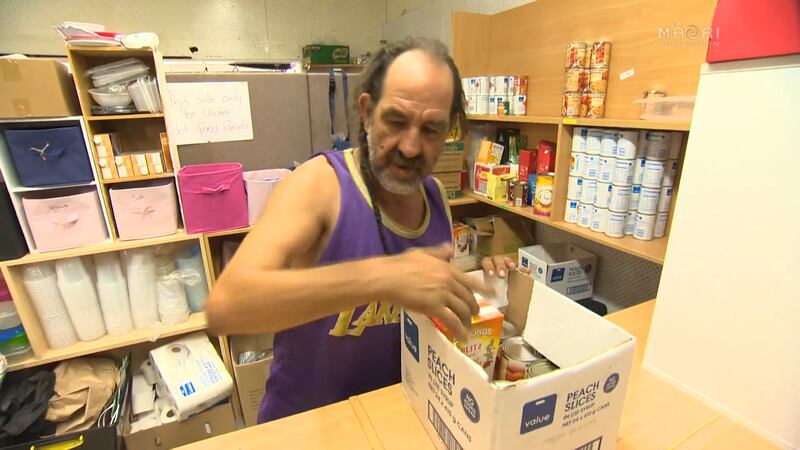Workers who have lost income due to Covid-19 are getting almost double the amount of government help in wage subsidy that job seekers are from benefits. This has raised concern among poverty advocates that a two-tier welfare system is forming before the eyes of the nation.
"The danger might be we end up developing something which is two-tier; which focuses on this kind of a payment; rather than fixing the problems already in the welfare system," Child Poverty Action Group (CPAG) and economist Susan St John says.
Once the current worker relief payments and subsidies end, St John hopes the government will start fixing a broken system.
Real reform overdue

Food parcels being prepared at Ngā Whare Waatea marae - Photo / File
“One hopes that the approach is a reformed welfare system, which means a much-improved safety net for anybody who becomes unemployed for whatever reason,” St John says.
But she says she’s seen nothing to indicate that that will be the case.
“That’s very worrying,” Professor St John says.
“Really we should have had the welfare state fixed up before this pandemic struck.”
The cost of low benefits

A 'Waka of Caring' volunteer prepares a food parcel - Photo / File
The result, she says, is that food banks, and other charitable services are taking up the slack.
“The levels of benefits are far too low,” Professor St John says.
“They’re not able to bring people up to even a low poverty level."
If the Coalition government doesn't follow the recommendations of the Welfare Expert Advisory Group, Professor St John says this will come back to bite it.
A different take
Te Ātiawa and Ngāti Tama economist Matthew Roskruge, has a different take.
"I get the impression that it (the Welfare Advisory Group Report) comes from a good place, but it doesn't seem particularly enabling or aspirational," Roskruge says.
"I feel like the document is almost accepting of high Māori welfare reception and is looking for ways of 'easing the burden' of welfare for Māori."
Roskruge feels the conversation needs to go in a different direction.
"How can we position Māori to be right there, riding the (Covid) recovery wave and building wealth?" he says.
"What can a welfare system do to support us to start businesses knowing that a safety net is there if things don't go to plan?"
One thing he says the report did right, was acknowledging the unpaid work many beneficiaries do.
"This initiative gets a massive tick from me," Roskruge says.
Helping the poor
Te Ao Māori News report on the February benefit changes - Video / Te Ao Māori News
Although the government hasn't implemented the recommendations of the Welfare Expert Advisory Group, it did make some tweaks.
In February this year, the Coalition raised the income threshold for benefits, and started adjusting benefits according to average wage increases. This meant solo parents could earn $115 a week as opposed to $100 a week before their benefits were reduced.
The aim was to incentivise sole parents to take on gainful employment that might have otherwise been untenable. The changes came into effect in April.
The requirement for solo parents to name the other parents of their children was removed as a criterion for welfare. Previously parents who did not name the other, had benefits reduced or taken away.
Auckland Action Against Poverty recently called on the government to remove all sanctions. It argued the sanctions did not achieve the desired outcomes and made beneficiaries' lives more difficult.
To help pensioners through Covid-19, the Government doubled the winter energy payment rates as well.


